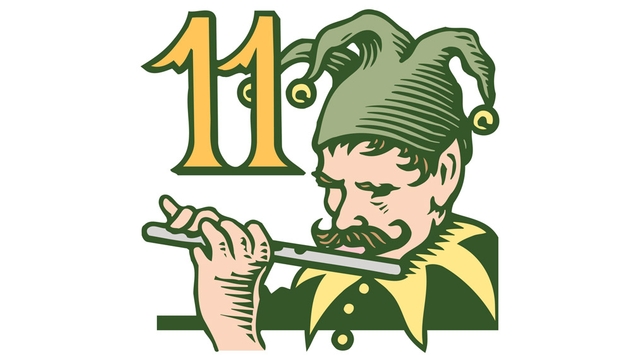Day 11 of 12 Days of Christmas: Eleven pipers piping
But he heard high up in the airA piper piping away,And never was piping so sad,And never was piping so gay.― William Butler Yeats SONGS about PIPERS: OTHER SONGS with SUMILAR THEMES — Wikipedia Scotland A similar cumulative verse from Scotland, “The Yule Days”, has been likened to “The Twelve Days of Christmas” in the […]

